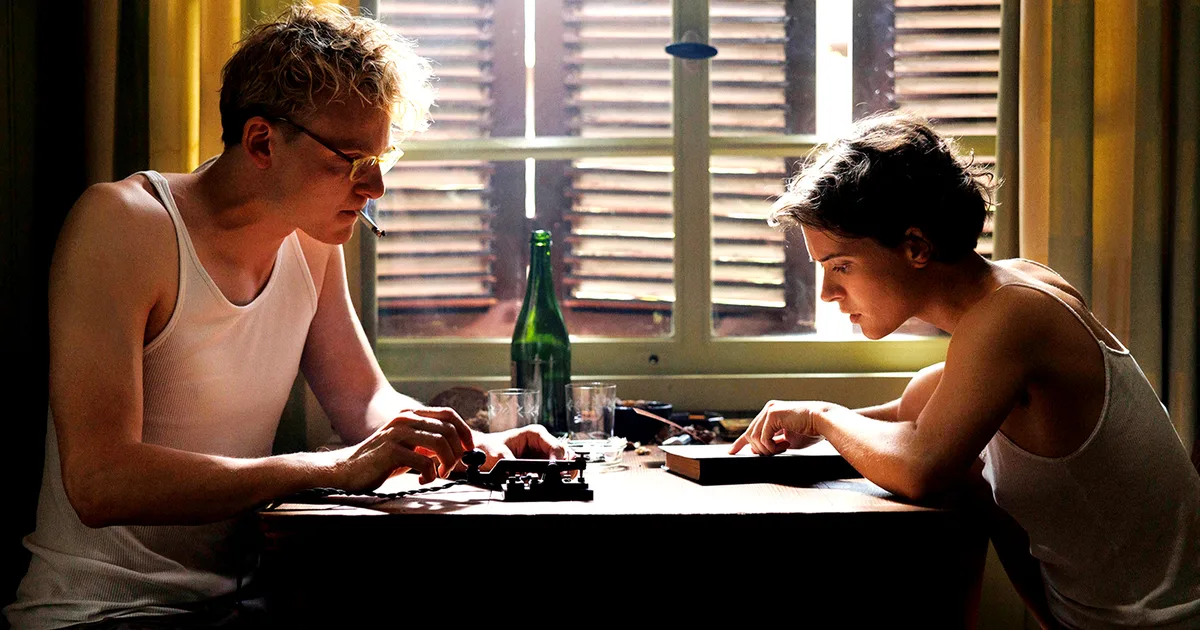
In East Germany, where director Andreas Dresen grew up, Hilde and Hans Coppi were talked about with the kind of reverence normally reserved for saints. Members of a Communist German resistance group known as the Red Orchestra, which was working to aid the Soviet Union against the Nazis, Hilde and Hans were regarded more as symbols of heroism rather than real people who lived and died for their cause. From Hilde, With Love attempts to breathe life into the legend that Dresen was brought up with, but this handsomely crafted biopic is too staid to make a lasting impact.
Hilde, played with quiet resilience by Babylon Berlin’s Liv Lisa Fries, is picking strawberries when the Gestapo arrive to arrest her. The film begins as it goes on, with Hilde’s idyllic life with Hans (Johannes Hegemann), all kissing in sunlit gardens and harbouring Soviet spies, juxtaposed with the unmerciful reality of the Third Reich. As she languishes in prison, where she endures an agonising childbirth, flashbacks reveal her falling in with this group of young Communists for whom resistance is an adventure as well as a duty. For Hilde, however, it’s primarily an act of compassion; after hearing pleas from German POWs via illicit Soviet broadcasts she writes letters to their families, reassuring them that their sons and husbands are still alive. Discussion of politics is kept to a bare minimum.
Get more Little White Lies
Every one of these flashbacks seems to take place on the most gorgeous summer’s day imaginable. At times it’s rather too beautiful, a “Visit Germany” logo threatening to appear at the end of another sequence of cavorting by a lake or speeding through the countryside on a motorbike. A much more significant problem is that these flashbacks play out in nonchronological order for no clear reason. If it’s a vague stab at shaking up the biopic formula it doesn’t work; in practice it’s needlessly confusing, and that the romance between reserved, slightly prudish Hilde and the dashing Hans feels genuine is in spite of this narrative device. One particularly affecting montage features Hans teaching Hilde Morse code by tapping his finger on her body, whether on her naked back after sex or on her knee on the bus, a secret language of love that’s also an act of rebellion.
To the film’s credit none of the Nazi characters are so cartoonishly abhorrent as to divorce them from reality. Some within this system, such as a prison guard who helps Hilde appeal her sentence, even show some humanity, making their active participation in the régime all the more unsettling. In the current climate rejecting complacency in the face of fascism is a more pertinent message than ever, so while its ending is a gut-punch it’s a shame that From Hilde, With Love isn’t the formally bold, politically radical film that the Coppis deserve.

